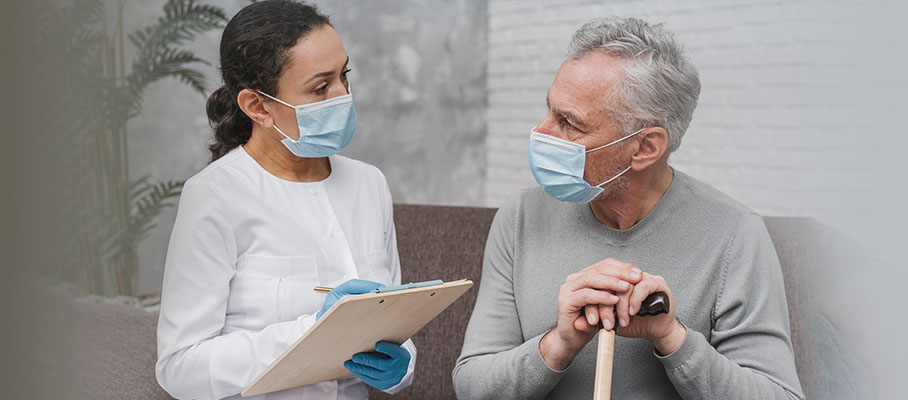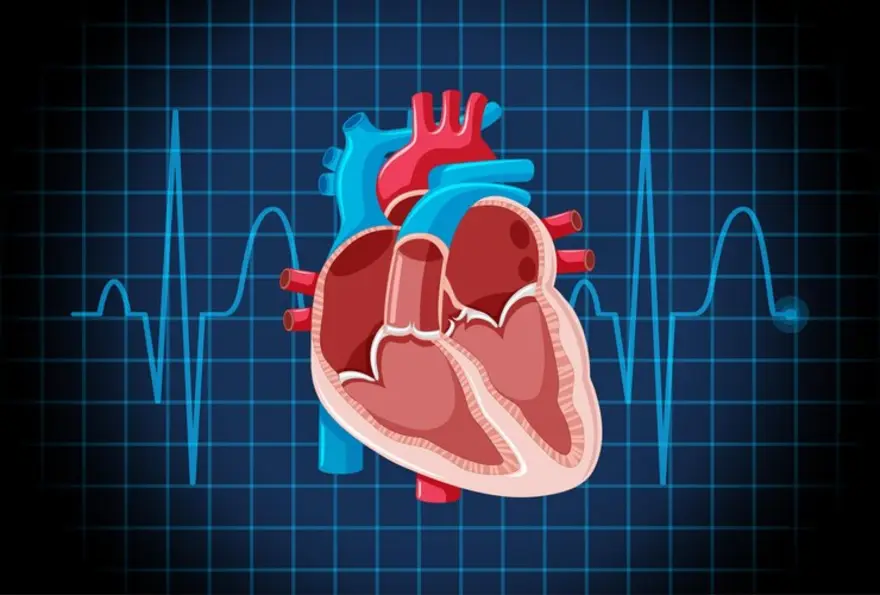post covid recovery care
Recovered from COVID? Post COVID care and health tests you must take
If you have just recovered from COVID-19, it will be unwise to let your guard down as an ever-increasing number of patients are continuing to experience symptoms after their initial recovery from the disease. COVID-19, caused by SARS-CoV-2, is relatively a new disease, with fresh data being collected on a dynamic basis about the course of the disease, especially in terms of patients being declared “cured”. Evidence demonstrates that most individuals after COVID infection do gain sufficient antibodies which can prevent their chances of reinfection. However, it is still inconclusive as to how long this immunity lasts. Various cases have been reported where patients have been re-infected. Hence, post-COVID care becomes more important, especially to those who belong to a high-risk category or are not able to take enough preventive measures to additionally protect their immune system. Guidelines recommending adequate preventive measures such as wearing a face mask, washing hands regularly and practicing social distancing should be strictly followed by such patients who have even recovered from the infection. When is a COVID-19 patient considered “cured” and can resume his normal life? According to CDC, adults with mild to moderate COVID-19 remain infectious no longer than 10 days after symptom onset. Most adults with more severe to critical illness or severe immunocompromised likely remain infectious no longer than 20 days after symptom onset. A patient can resume his routine activities while maintaining COVID-appropriate behaviour on the basis of the extent of damage of lungs and other tissues. The recovery period is likely to be longer for patients who suffered from more severe forms of the disease and those with pre-existing illnesses. What are the complications experienced by a post-COVID patient? Recovered patients after acute COVID-19 illness may continue to experience various signs and symptoms including fatigue, body ache, cough, sore throat, difficulty in breathing, etc. Some of the complications seen in patients include deleterious effects on lungs, kidneys, heart, and manifestation of black fungal infection, known as mucormycosis. Therefore, a holistic approach is essential for follow up care and well-being of post-COVID recovering patients. Post-COVID Follow Up Care Nutritious diet Eating a balanced nutritious diet, rich in immune boosting vitamins and minerals including fruits, vegetables, eggs and safe poultry is of utmost importance to speed up recovery Some patients experience unexplained weight loss or weight gain, hence, weight adequate calories must be provided according to the patient’s nutritional status Intake of protein is recommended to be 1.2-1.3 g/kg per day along with the increase in the supplementation of branched-chain amino acids to 50%, in order to prevent muscle loss and enhance the strength of respiratory muscles. Keep yourself hydrated Drink plenty of fluids. Recommendations suggest that drinking warm water can be helpful for patients with scratchy throat or dry cough as it improves circulation and reduces nasal congestion Addition of anti-inflammatory agents like honey or herbs like “mulethi” in kadhas and other concoctions can additionally aid in immunity. Rest, exercise and meditation Your body is still weak and susceptible to infections and complications after COVID-19 infection Taking proper rest and sleep can help your body recover faster Do not overstrain yourself COVID patients are advised to practice breathing exercises to improve respiratory distress and relieve congestion Performing the active cycle of breathing techniques (ACBT) with the help of physiotherapist can help you in clearing sputum from your chest Doctors also recommend patients to not stay in bed all day, and try to sit in a chair for meals and perform activities such as short walks to improve physical strength and function Therapeutic mediums, like yoga and meditation including yoga-asanas, such as pranayama, can improve recovery and help in dealing with stress associated with COVID -19 infection. Advice for patients with respiratory symptoms like pneumonia is to rest for a week or 10 days before resuming exercising while patients suffering from chronic cardiac issues should take a break of 2-3 weeks before restarting their pre-illness exercise regimen. Avoid indulging in deleterious habits Avoid smoking and drinking alcohol, as they both are considered as risk factors for COVID infection and are deleterious to the healing efforts of the body. Avoid smoking and drinking alcohol, as they both are considered as risk factors for COVID infection and are deleterious to the healing efforts of the body. Medications and tests Take regular medications for comorbidities as prescribed by your doctor Patients who had a severe infection or breathing issues are asked to self-monitor their temperature, SPO2 levels, blood pressure and blood sugar at home for the first few weeks after being declared COVID free Various tests suggested for patients recovered from COVID -19 infection are: IgG antibody tests: The IgG antibody tests evaluate antibodies in your blood to ascertain how immune-protected you are. Complete blood count (CBC): CBC tests are performed to assess different types of cells in your blood (RBCs, WBCs, platelets). This test can help your doctor estimate how you have responded to the COVID infection. In addition, the test also acts as a guide about the additional measures that are required for your body post-recovery. Glucose, cholesterol tests: COVID -19 infection is known to cause changes in glucose and blood pressure levels of the patient. It is important to undergo these tests and keep track of blood glucose and cholesterol levels, if you have pre-existing conditions such as type-1 or type-2 diabetes, abnormal cholesterol or are susceptible to cardiac complications. Vitamin D test: Vitamin D is an essential nutrient that helps in your immune function, therefore, its supplementation is vital for faster recovery from COVID infection Chest scans: Majority of patients cured from COVID-19 complain about issues related to lungs. High resolution computed tomography (HRCT) scans are advised to diagnose the severity of disease and the residual level of lung involvement caused due to COVID infection. Cardiac screening: Studies have revealed that COVID-19 infection causes widespread inflammation in the body, which further results in injury of heart muscles, leading to complications such as myocarditis, one of the most common problems reported in COVID patients. In nutshell, an average COVID-19 patient usually takes 3 weeks to fully recover; however, new studies have focussed our attention towards those individuals who may have experienced severe effects on their kidney, lungs and heart, even long after they recovered. Therefore, it is not only crucial to adhere to guidelines of wearing masks, hand hygiene and practicing social distancing, these patients are also encouraged to consistently follow abovementioned practices to keep themselves healthy. Taking care of a COVID-positive loved one at home? Check the health of the vital organs with COVID monitoring package.
 Home Visit
Home Visit Upload
Upload















 WhatsApp
WhatsApp